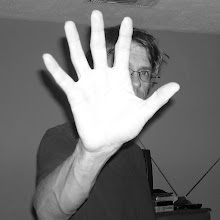“So, we had shot the pilot, and then it aired. And I remember that night as if it were yesterday. We had a big party at our house and lot of the cast members and crew were there. It was airing on television and the phone started ringing. People on the East Coast had just finished watching it. There was this wave of people across the United States calling as soon as it finished airing in their time zone. It never occurred to me that it was going to air on other people's televisions! I thought it was only on mine! Very surreal!” – Sheryl Lee, Wrapped in Plastic #16, p. 5
“When we shot [Sheryl Lee] it was cold—I mean, it was so cold. And she lay out there, and then we’d have to take her away, where they had these blankets and heaters set up behind this giant log. So she’d run fifteen and go into this warm little tent and get her body temperature back up, and then go back and shoot. She was a great sport” – David Lynch, Lynch on Lynch (ed. by Chris Rodley), p. 172.
“When they screened the pilot at the Director’s Guild everybody laughed after I did the phone thing. Then, when I came on again, everybody cheered. Nobody else in the pilot got the same boisterous response as I did. I was completely shocked. I couldn’t shut my mouth. I have witnesses; they were there with me. Afterwards, David and Mark came up and said, ‘We’ve got plans for you.’” -- Kimmy Robertson, Wrapped in Plastic #43, p. 3
“I would say that generally a lot of the scenes from the pilot were shot from the hip. There was a lot of improvisation. So we might go into one scene with expectations we had from the script, and David would change the format and change the intent of the scene. . . . And, of course, he was influenced by the powerful setting up there. [ . . .] It was a wonderful experience, shooting that.” – Everett McGill, Wrapped in Plastic #44, p. 14
“All of a sudden this hastily typed-out three or four page scene is presented to me. And David says, ‘OK, that's your scene.’ I looked at it, and it's not just a three or four page simple scene—it's mostly written in poetry. In normal film dialog, if you can get the gist of it, you can kind of paraphrase it and make it work. But if you're dealing with poetry, you have to be letter perfect. Ten minutes later, they were saying, ‘OK, we're ready!’ It was probably the thirty years of training I had before, and the kind of empathetic sense I have with David, that allowed me to be able to do all that cold.” -- Al Strobel, Wrapped in Plastic #11, p. 3
“There’s this monologue that Bob has to do. And David's going, ‘See this? We do this scene. And see these four lines here? Well, that's a song, Frank. Those are lyrics. Make up a tune. Just make something up.’ I didn't know what I was doing. I thought, ‘Here I am, I'm a crew member. If I'm horrible, everybody's going to laugh at me. I'm going to be this big joke doing this scene.’ So every ounce of energy, every ounce of everything, was drawn up. I don't know how I did it.” – Frank Silva, Wrapped in Plastic #7, p. 9
***
“I asked [David Lynch] if the Twin Peaks pilot would be get picked up [as a network series] today. ‘I kind of doubt it,’ he replied.” – Tad Friend, “Creative Differences,” The New Yorker, 9/6/99, p. 67.
(Note: Most of the above quotes were first compiled in Wrapped In Plastic #46. See that issue for more observations abou the Twin Peaks pilot from the cast and crew.)


